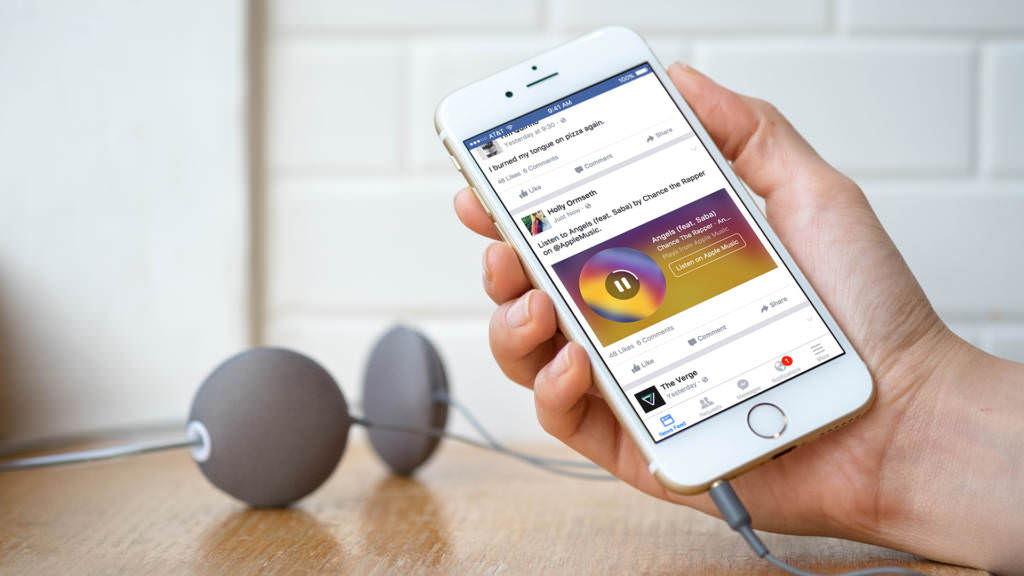Facebook is offering major record labels and music publishers hundreds of millions of dollars so that its users can legally include songs in videos.
This news, reported by Bloomberg, comes mere weeks after a debate between YouTube and executives from the music industry about how much should be (and is actually) paid. Negotiations have been underway as early as February of this year.
Remaining competitive with YouTube is all part of Facebook’s “video first” business plan. “I see video as a megatrend,” CEO Mark Zuckerberg told investors during its fourth quarter earnings in February. “That’s why I’m going to keep putting video first across our family of apps.”
Facebook just launched Watch tab—a direct competitor to YouTube. The new video hub will compete with Amazon’s Twitch by allowing users to interact in real-time as they watch, with the goal of creating communities around original content. Facebook is reportedly spending as much as $1 billion for original Watch programming this year.
The company knows that in order to succeed, it will have to play nice with the music industry. Helming music rights negotiations for Facebook in this matter is Tamara Hrivnak, a former executive for YouTube as well as Warner/Chapell Music.
Warner Music Group begrudgingly renewed its recorded music and publishing deals with YouTube earlier this year, according to a memo obtained by Billboard.
“There’s no getting around the fact that, even if YouTube doesn’t have licenses, our music will still be available but not monetized at all,” Warner Music Group CEO Stephen Cooper wrote in the memo. “Under those circumstances, there can be no free-market ‘willing buyer, willing seller’ negotiation.”
Facebook may have a better chance of obtaining a more satisfactory deal with Warner Music Group and others under the guidance of Hrivnak. If so, such a deal may force YouTube to match or rethink their payment methods, as well. Higher royalties could make Facebook Watch more attractive to music labels and marketers during a time when advertisers are already concerned with brand safety and fake traffic through Google.
The memo said that Warner Music Group was able to secure “the best possible deals under very difficult circumstances” and that term for the deal is shorter so to allow for “more options in the future.” These options, probably refer to the music industry’s hope for stricter copyright legislation—closing the “value gap” between streaming site income and safe harbor sites like YouTube and Facebook.
The current legal framework for copyright online allows users to upload video with infringing material and leaves enforcement up to rights holders. YouTube allows these rights holders to monetize the videos rather than take them down—keeping users relatively happy while ensuring at least some income for the creators. The music industry isn’t satisfied with the solution, especially since streaming sites like Spotify and Apple Music pay billions each year.
In the International Federation of the Phonographic Industry (IFPI) annual state of the industry report, IFPI chief executive Frances Moore said, “The whole music community is uniting in its effort to campaign for a legislative fix to the value gap and we are calling on policymakers to do this. For music to thrive in a digital world, there must be a fair digital marketplace.”
Until copyright laws require video sites like YouTube to pay the same as streaming music companies, Facebook can at least sweeten the deal with a whole lot of money.

